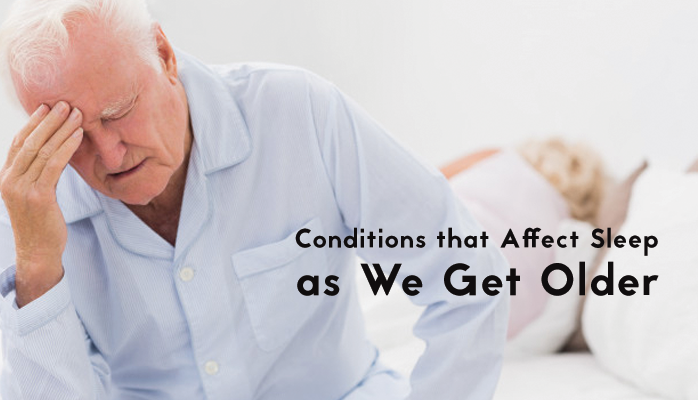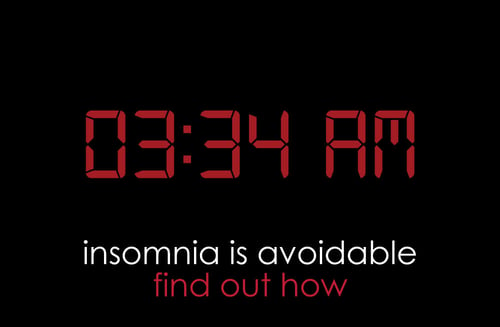Getting Older Often Means More Sleep Problems
As you get older, the likelihood that you will develop or report sleeping issues will increase with age. This is because sleep patterns will change over time, requiring you to adapt in order to acquire adequate sleep. Examples of these changes include:
- You will likely sleep less than 7 hours at night
- Your sleep may feel less restful during the night
- You may be more inclined to nap
- The times that you go to bed and wake up will also likely change
As an adult, you should average 7-9 hours of sleep every day. However, these hours do not have to be continuous.
Younger individuals often have less challenges with sleeping throughout the night uninterrupted. But as sleep patterns change with age, getting the same amount of uninterrupted sleep may seem impossible.
Regardless, it's still vital for the body to obtain 7-9 hours of sleep. To obtain this, even with shorter sleeping periods at night, older adults often have to supplement their nightly sleep with long, daily naps, or separate their sleep into two long sessions with a break of wakefulness. The method in which one acquires this sleep is irrelevant, but what is important, is that getting the requisite amount of sleep is a conscious effort that requires intention and planning.
The causes of the changes are multifactorial - stress, family, job changes, hormones, nature - and can make one more susceptible to certain sleep disorders. Let’s look at some of the sleep disorders that are more common in older people.
Insomnia
People over the age of 65 report much higher incidence of insomnia than younger age groups. Insomnia is described as difficulty falling asleep, staying asleep, or waking too early and being unable to return to sleep. Elderly individuals may exhibit different insomnia symptoms such as going to bed and waking up earlier.
When waking up earlier begins to take place at unseemly hours, e.g. 3am, then it becomes very worrisome. These changes can be disruptive enough that without conscious changes to sleeping behaviors, sleep deprivation is the result.
Developing Restless Leg Syndrome As We Age
Restless leg syndrome (RLS) is a nervous system disorder that causes discomfort in the legs and arms. It can range from a minor irritation to extremely discomfort. When the discomfort is enough to interfere with sleep, it is considered a sleeping disorder.
RLS is by far most common in people middle-aged and older. While it can develop in those younger adults, it’s uncommon.
Some of the symptoms include the following feelings at night:
- Aching, throbbing, or burning
- Cramping (especially in calves)
- Jerking
- Buzzing or vibrating feelings
- Itchy feeling
- Feeling of pins and needles
- Creepy crawly feeling
- Irresistible urge to move your leg to relieve the discomfort
RLS has no specific treatments, though exercise and stretching can make a big difference.
Age and Obstructive Sleep Apnea
Obstructive sleep apnea (OSA) is one sleep disorder that is much more common in older individuals. Obstructive sleep apnea occurs when the upper airway becomes blocked while sleeping as a result of collapsed muscles in the back of the neck. The result is a pause in breathing that wakes up the body to begin breathing again. The sleeper often does not remember these events, but they can be so frequent that the result is chronic sleep deprivation.
Symptoms of obstructive sleep apnea are:
- Loud snoring
- Restless sleep
- Morning headaches
- Severe daytime sleepiness
- Chronic irritability
OSA is a serious medical condition with significant consequences that should not be ignored.
Circadian Rhythm Disorders
The circadian rhythm is a biological clock that manages and regulates the sleep-wake cycle. There are many factors that can interrupt your biological clock, such as extreme lighting conditions, jet lag, shift work, and so on. The circadian rhythm may undergo major changes with age for no apparent reason. For example, you may transition from being a night owl to a morning bird.



